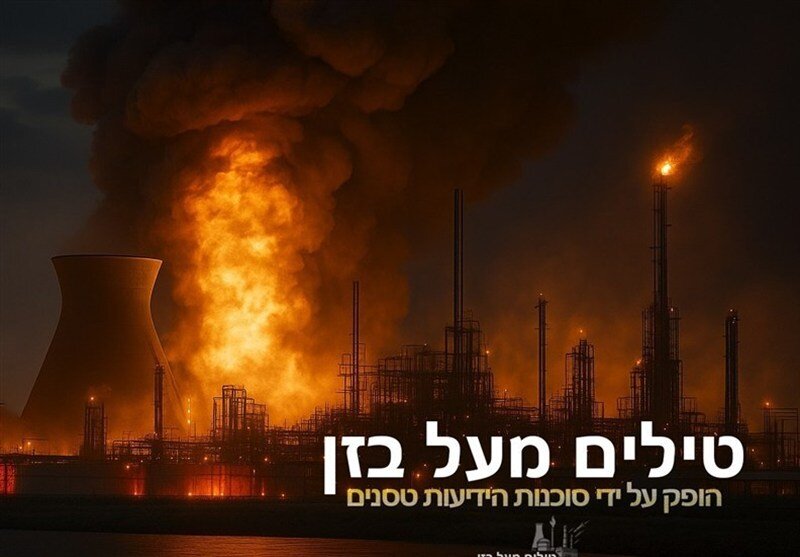The Tasnim News Agency has published its first Hebrew-language documentary entitled “Missiles over Bazan” which presents Iran’s account of missile attacks against Israel during the June 12-day war in June.
The Israel National News website has reacted to the documentary film.
“This is a new approach in Iran’s media coverage of Israel, and it is the first time that a film has been produced specifically in Hebrew for Israeli audiences,” it said.
The Israeli outlet also wrote that the focus of this documentary is on Iran’s missile attack on Haifa oil refineries; “An event that the producers (of the documentary) claim could change the course of the war and alter the power equations in the region.”
The first Hebrew-language documentary produced in Iran debuted at the Tasnim News Agency in the presence of a group of media activists specializing in regional affairs.
The documentary presents a new and less-heard narrative of the conflict between Iran and the Zionist regime and also represents a new step in productions addressing the issue of Israel.
After the screening of the documentary, a number of attendees requested the release of the Persian version and versions in other languages, including English and Arabic. Majid Qolizadeh, CEO of Tasnim, announced that the versions of the documentary in Persian and other languages will be ready for release soon.
“Missiles over Bazan” takes an analytical and factual look at the covert confrontation between Iran and the Israeli regime in the field of oil and gas infrastructure.
Throughout the narrative, the audience becomes acquainted with new dimensions of intelligence dominance and high-level decision-making in wartime, when strategic rationality and iron will portray a precise and realistic image of Iran’s power on the battlefield.
The purpose of producing the documentary is to engage in dialogue with Israeli public opinion from a position of power and reality -an effort to display an image that has long been hidden from Hebrew-speaking audiences.
Using expert interviews, intelligence data, and visual reconstructions, the documentary seeks to convey the truth of the field in contrast to the depictions presented by Western and Israeli media.
MNA
